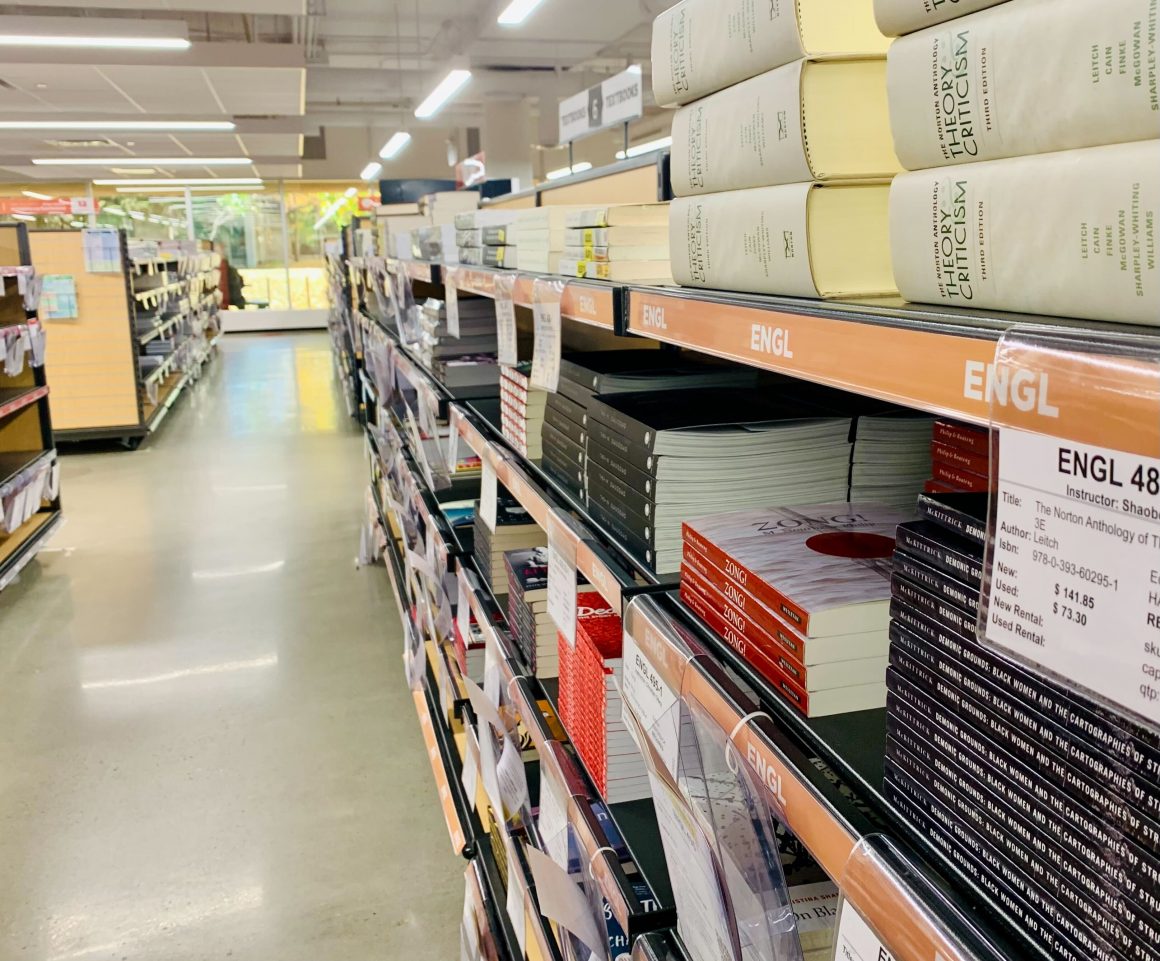
Alberta needs its own OER program
By Allan Birkett, October 24 2022—
University of Calgary students are increasingly feeling a squeeze when it comes to financing textbooks and other paid resources. A poll in 2021 identified the cost of textbooks as a cause for financial stress for 85 per cent of U of C students.
Mandatory textbooks can add up to the equivalent of an additional course — or more — worth of tuition per year, which places a huge strain on students already struggling to make ends meet. The knock-on effects of market inflation, as well as per annum tuition increases of 25 to 60 per cent, means many U of C students are choosing between putting food on the table or purchasing required educational resources.
A 2017 Maclean’s article estimated U of C students spend around $773 on textbooks per year. An RBC report from 2016 places the Canadian average closer to $1000 a year.
The Students’ Union (SU) is pressing for the most effective solution to this problem — the implementation of Open Educational Resources (OERs).
OERs are learning resources that can be distributed to students who need them, free of charge, thanks to agreements with their copyright holders. These often include textbooks, but can also account for supplemental resources like audio and video resources behind paywalls.
The SU has made the implementation of OERs a top priority this year, spearheading their own OER initiative with support from the university library.
OERs are the way forward to ensure that all students have access to the resources they need, regardless of their financial situation.
If we are to live up to the aims of the U of C’s Office of Equity, Diversity and Inclusion (EDI), OERs are a must. By expanding faculty libraries to include a wider variety of open access textbooks, professors have the freedom to include materials more reflective of EDI goals. Resources that express the experiences of racialized, LGBTQ+, and otherwise ostracized people are more readily accessible within an open access system.
“If we want to make room for more diverse voices in our language classes, promote critical thinking, then absolutely, having the freedom to do so is important,” explained Dr. Hasheem Hakeem, assistant professor in the French department.
Making all students feel represented during their studies is crucial. Dr. Hakeem shares my hope that by framing the issue as one that is salient to EDI, faculty collaboration can bring about necessary change.
“Colleagues are very receptive in our department. There has been an openness to the idea, at least,” said Hakeem.
Clearly, stakeholder collaboration — among and between students, SU officials and faculty members — can help bring about this change.
What models does the U of C have to guide them should SU advocacy become reality? My home province of British Columbia shows a comparable model of success for OERs. Provincially, the government-funded BCCampus OpenEd has saved students over $31 million since its inception in 2012, with students from the University of British Columbia benefitting from the greatest overall savings across 43 institutions provincewide.
BCCampus OpenEd actually collaborated with the Alberta government since 2013 on an OER program here, but the results of AlbertaOER were lackluster. The AlbertaOER website alluded to savings of $5.5 million over five years, but its projects were defunded entirely in 2017. The political will needed from the current provincial government to revive the program is nonexistent.
The UCP government’s stance is that while OERs have a place within the Alberta 2030 initiative to modernize our post-secondary system and ensure economic prosperity, they are not a top priority. The Alberta 2030 strategy explicitly mentions them once, without detailing how or to what degree investments will be made to address students’ struggles in accessing resources. Instead, the government focuses principally on supporting students through existing student aid measures. How innovative.
I believe, as the University of Alberta Students’ Union stressed in their Alberta 2030 consultation submission, that the province needs its own fully-fledged OER program. BCCampus OpenEd in B.C. and eCampus Ontario are both provincially-funded and have partnerships with over 40 institutions in each province. We need stronger advocacy from university administrations to pressure the government for much-needed funding. A well-funded, centralized coordination by the provincial government with input from relevant stakeholders pushing for increased accessibility, financial savings and socially relevant resources could engender a successful program here in Alberta, similar to in BC and Ontario.
This article is a part of our Opinions section does not necessarily reflect the views of the Gauntlet editorial board.
